Rare Names of Lord Shiva You've Probably Never Heard Before
Vaibhav Kochar | Jul 23, 2025, 23:35 IST
Shiva
( Image credit : Pixabay )
Lord Shiva, a pillar of support, has over a thousand names. The article explores nine rare names like Chandrapal, Mrityunjaya, and Virupaksha. Each name reveals a layer of Shiva's cosmic personality. Kapalin embraces imperfection, while Bhikshatana teaches humility. Ardhanarishwara balances masculine and feminine energies. Tripurantaka destroys ego, Nataraja embodies cosmic dance, and Aghora embraces darkness.
For many of us, Lord Shiva is not just a deity. He is that silent support when everything breaks, the quiet voice in chaos, and the divine in destruction. From temples to tattoos, from chants to silence, Shiva is everywhere.
We are all familiar with names like Mahadev, Bholenath, Neelkanth, and Shankar. But Shiva has over a thousand names, each revealing a new layer of his cosmic personality. In this article, let’s delve into nine rare and lesser-known names of Lord Shiva, exploring their emotional, psychological, and spiritual meanings.
Because sometimes, a single name can feel like a personal message from him to you.
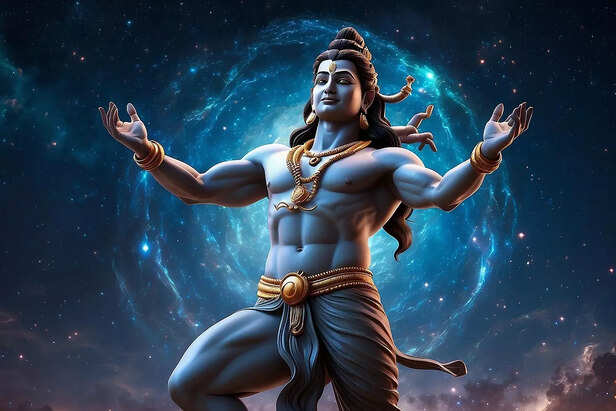
While Chandrashekhara is somewhat known, Chandrapal is rarely spoken. It means "the protector or bearer of the Moon."
The moon here isn’t just an ornament. In Indian philosophy, the Moon represents the mindcalm, restless, dreamy, or stable. Shiva wearing it on his head means he controls the mind, not the other way around.
Emotional Insight:
In times when your thoughts are spiraling or when anxiety grips you, this name reminds you: Shiva carries your chaos. You don't have to do it alone.
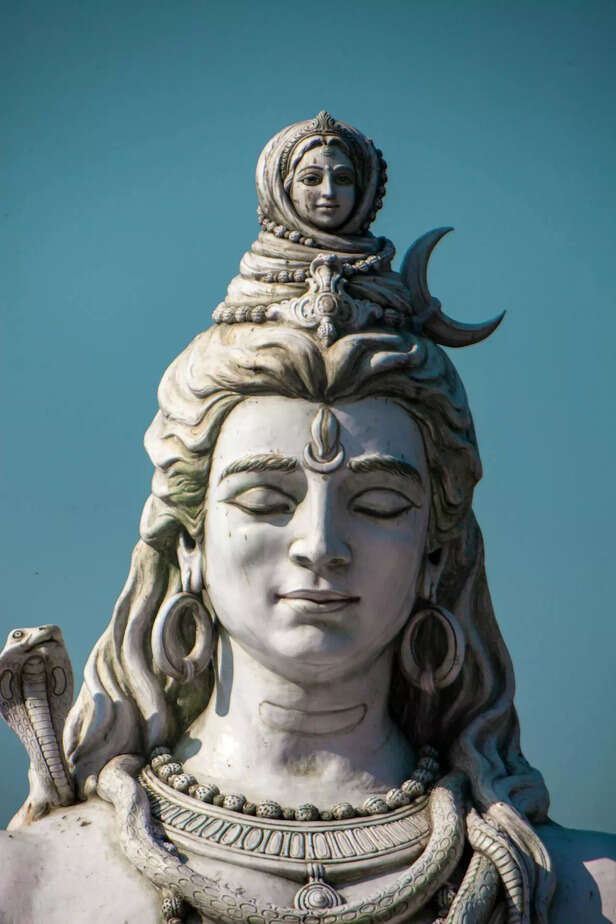
We often chant the Maha Mrityunjaya Mantra, but rarely think of this name deeply. Mrityu means death, and Jaya means victory.
Shiva is the one who defeated death, not by escaping it, but by understanding it. He reminds us that spiritual strength lies in acceptance, not denial.
Psychological Meaning:
This name gives hope to those battling grief, loss, or terminal illness. Shiva does not promise eternal life but eternal peace even in death.
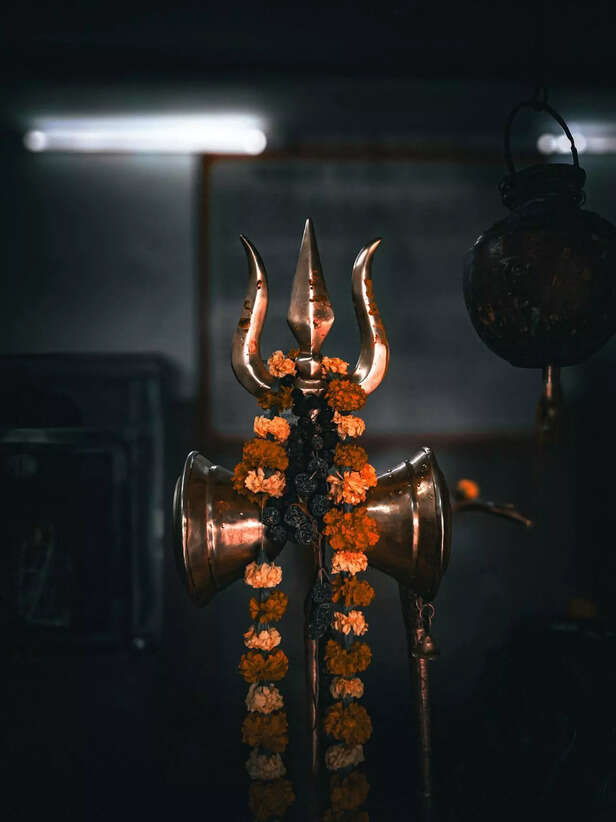
This unique name means “he who sees what others cannot.” One eye sees the outer world, and the other looks inward. Virupaksha teaches us that truth isn’t always symmetrical or beautiful. It can be distorted, raw, and uncomfortable, still, real.
Modern Insight:
When the world misjudges you or you feel unseen, this name reminds you: Shiva understands the parts of you no one else sees.
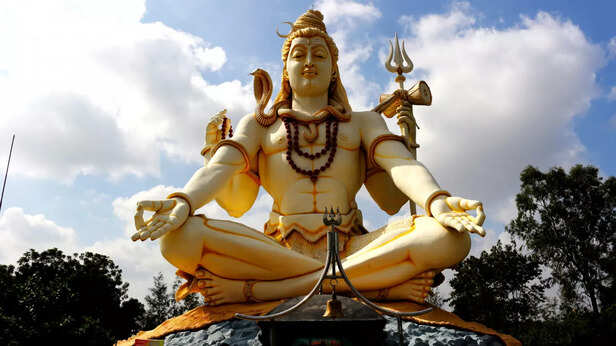
Kapalin means "the one who wears a garland of skulls." While this may sound dark, it holds deep meaning.
The skulls represent ego, pride, and the false selfwhich Shiva has already conquered. Kapalin doesn’t fear death or ugliness. He wears it as a badge of truth.
Impactful Takeaway:
In a world chasing perfect lives and pretty filters, Kapalin is a name that makes you comfortable with imperfection. You don’t have to hide your scars.
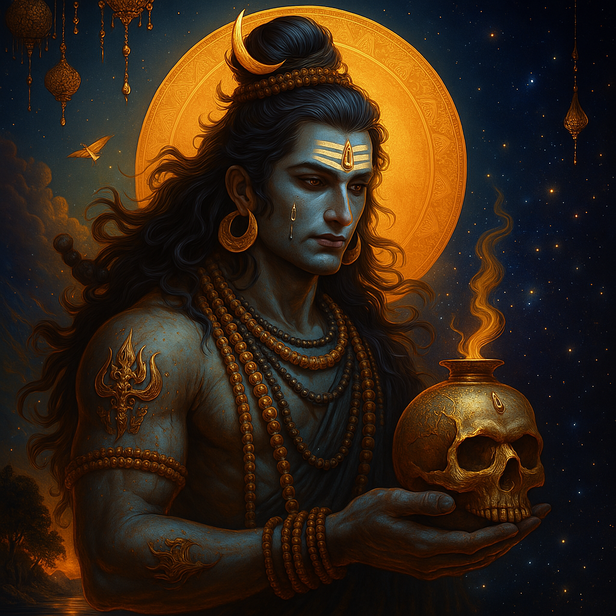
After killing Brahma’s fifth head, Shiva had to walk the world as a beggar (Bhikshatana) to relieve himself of the sin.
Even the mighty God had to atone, walk alone, and stay humble.
Emotional Lesson:
Everyone makes mistakes seven the divine. But accepting, repenting, and moving forward is where true power lies. Bhikshatana teaches humility even in greatness.
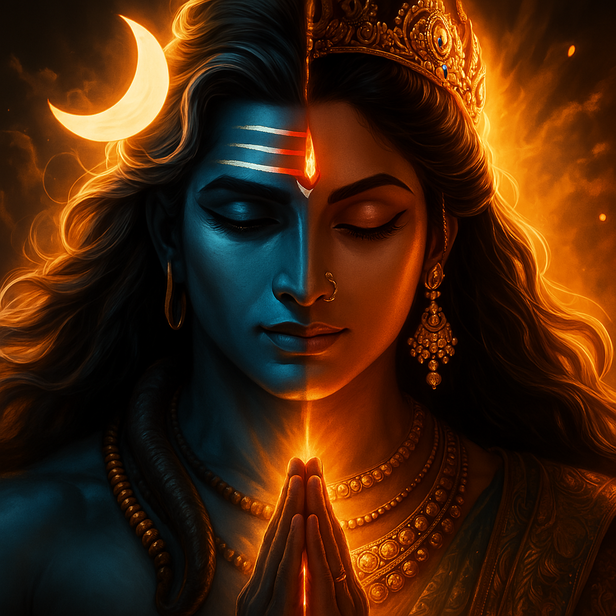
Yes, many know this form, but very few feel the meaning of this name. Ardhanarishwara is Shiva and Shakti in one body balance of masculine and feminine.
He is not just manly. He is sensitive, nurturing, emotional, and understanding qualities usually labelled "feminine."
Societal Impact:
In a world still struggling with gender roles, this name is a spiritual slap to patriarchy. It says: real power comes from balance, not dominance.

Tripura symbolizes the three major impurities in life: ego, ignorance, and desire. Tripurantaka is the name given to Shiva when he destroys these illusions in one powerful arrow shot.
But what’s beautiful is he doesn’t destroy the cities angrily. He does it when the time is right, with calm intention.
Mental Health Insight:
When your life feels like a mess of overthinking, over-wanting, and over-worrying Tripurantaka reminds you: Shiva knows when to clean the mess, even if it feels delayed.
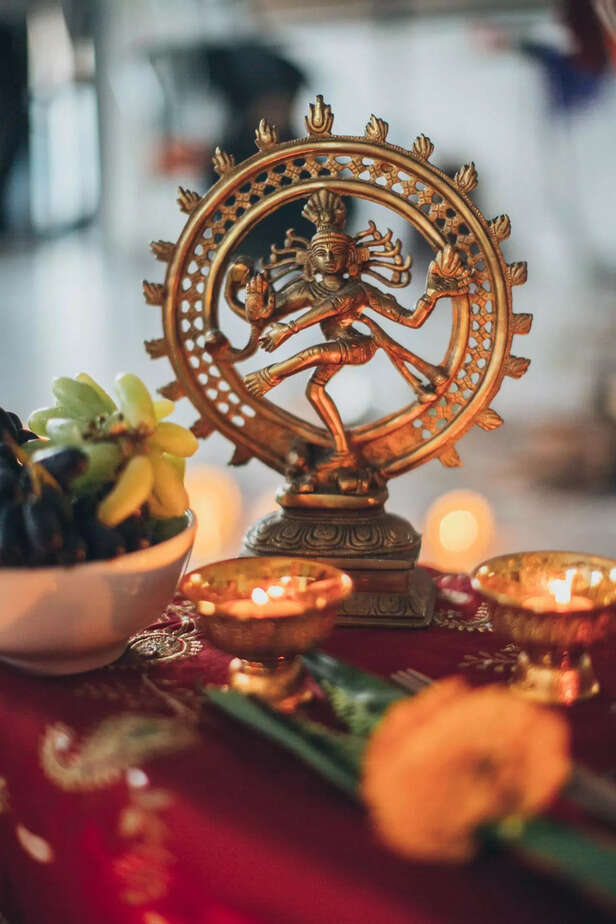
We’ve seen the Nataraja statue, but what many miss is that his dance is not for fun. It’s for balance. Creation, destruction, silence, chaos in one step.
Every move has meaning. Every rhythm is time. Every beat is a heartbeat.
Spiritual Insight:
Your ups and downs aren’t random. You’re just a part of his divine choreography. Breathe. You’re dancing with Shiva, even when it hurts.
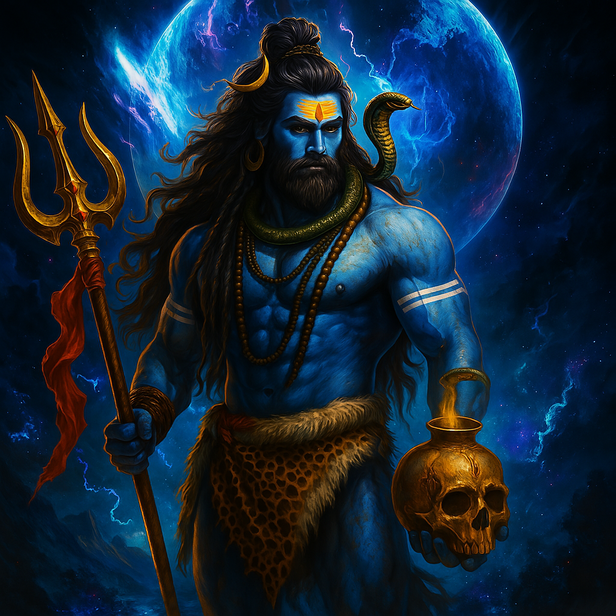
Aghora means “not terrible” or “beyond fear.” It’s a form of Shiva that walks cremation grounds, holds snakes, and befriends ghosts, not out of horror, but out of acceptance.
Aghora doesn’t reject the ugly side of life. He walks into it with open arms.
Emotional Power:
When you’re broken, ashamed, or afraid of your thoughts, Aghora whispers: “Come. I don’t judge. I’m still with you.”
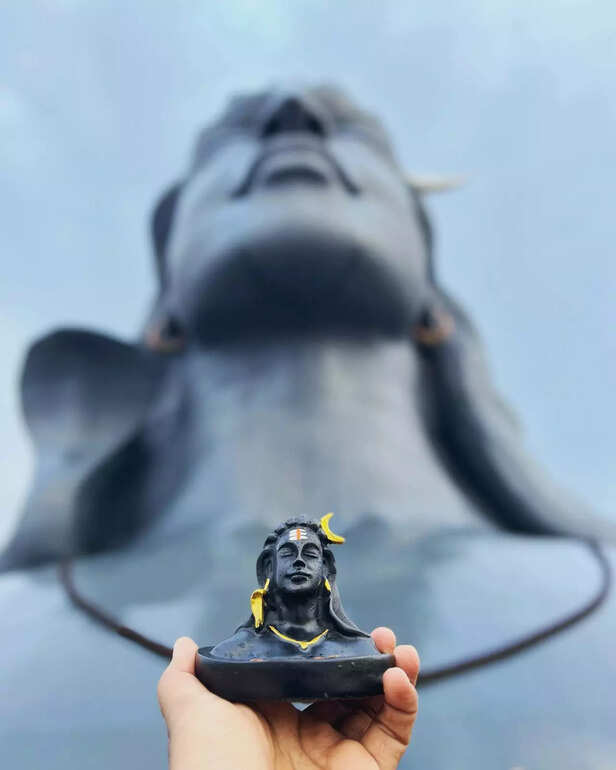
We often think of God as distant, perfect, and out of reach. But Lord Shiva breaks that myth with every one of his names.
Whether you’re tired, anxious, brave, grieving, wild, confused, or healing, Shiva has a name that matches your emotion. That’s why he’s not just a God to be worshipped. He’s a soul to be felt.
In a world that demands you to be strong 24/7, these lesser-known names remind you:
You are allowed to break. To question. To cry.
Because even the Lord of Lords had different moods, moments, and masks.
So, the next time you chant “Om Namah Shivaya”, just know you’re not calling just one God.
You’re calling many truths... in one name.
Explore the latest trends and tips in Health & Fitness, Travel, Life Hacks, Fashion & Beauty, and Relationships at Times Life!
We are all familiar with names like Mahadev, Bholenath, Neelkanth, and Shankar. But Shiva has over a thousand names, each revealing a new layer of his cosmic personality. In this article, let’s delve into nine rare and lesser-known names of Lord Shiva, exploring their emotional, psychological, and spiritual meanings.
Because sometimes, a single name can feel like a personal message from him to you.
1. Chandrapal – The Lord Who Carries the Moon

Chandrapal
( Image credit : Freepik )
While Chandrashekhara is somewhat known, Chandrapal is rarely spoken. It means "the protector or bearer of the Moon."
The moon here isn’t just an ornament. In Indian philosophy, the Moon represents the mindcalm, restless, dreamy, or stable. Shiva wearing it on his head means he controls the mind, not the other way around.
Emotional Insight:
In times when your thoughts are spiraling or when anxiety grips you, this name reminds you: Shiva carries your chaos. You don't have to do it alone.
2. Mrityunjaya – The Conqueror of Death

Mritunjaya
( Image credit : Pexels )
We often chant the Maha Mrityunjaya Mantra, but rarely think of this name deeply. Mrityu means death, and Jaya means victory.
Shiva is the one who defeated death, not by escaping it, but by understanding it. He reminds us that spiritual strength lies in acceptance, not denial.
Psychological Meaning:
This name gives hope to those battling grief, loss, or terminal illness. Shiva does not promise eternal life but eternal peace even in death.
3. Virupaksha – The One with the Uneven Eyes

Virupaksha
( Image credit : Pexels )
This unique name means “he who sees what others cannot.” One eye sees the outer world, and the other looks inward. Virupaksha teaches us that truth isn’t always symmetrical or beautiful. It can be distorted, raw, and uncomfortable, still, real.
Modern Insight:
When the world misjudges you or you feel unseen, this name reminds you: Shiva understands the parts of you no one else sees.
4. Kapalin – The Skull Bearer

Kapalin
( Image credit : Freepik )
Kapalin means "the one who wears a garland of skulls." While this may sound dark, it holds deep meaning.
The skulls represent ego, pride, and the false selfwhich Shiva has already conquered. Kapalin doesn’t fear death or ugliness. He wears it as a badge of truth.
Impactful Takeaway:
In a world chasing perfect lives and pretty filters, Kapalin is a name that makes you comfortable with imperfection. You don’t have to hide your scars.
5. Bhikshatana – The Divine Beggar

Bhikshatana
( Image credit : Times Life Bureau )
After killing Brahma’s fifth head, Shiva had to walk the world as a beggar (Bhikshatana) to relieve himself of the sin.
Even the mighty God had to atone, walk alone, and stay humble.
Emotional Lesson:
Everyone makes mistakes seven the divine. But accepting, repenting, and moving forward is where true power lies. Bhikshatana teaches humility even in greatness.
6. Ardhanarishwara – The Half Woman Form

Ardhanarishwara
( Image credit : Times Life Bureau )
Yes, many know this form, but very few feel the meaning of this name. Ardhanarishwara is Shiva and Shakti in one body balance of masculine and feminine.
He is not just manly. He is sensitive, nurturing, emotional, and understanding qualities usually labelled "feminine."
Societal Impact:
In a world still struggling with gender roles, this name is a spiritual slap to patriarchy. It says: real power comes from balance, not dominance.
7. Tripurantaka – The Destroyer of the Three Cities of Ego

Tripurantaka
( Image credit : Unsplash )
Tripura symbolizes the three major impurities in life: ego, ignorance, and desire. Tripurantaka is the name given to Shiva when he destroys these illusions in one powerful arrow shot.
But what’s beautiful is he doesn’t destroy the cities angrily. He does it when the time is right, with calm intention.
Mental Health Insight:
When your life feels like a mess of overthinking, over-wanting, and over-worrying Tripurantaka reminds you: Shiva knows when to clean the mess, even if it feels delayed.
8. Nataraja – The Cosmic Dancer

Nataraja
( Image credit : Pexels )
We’ve seen the Nataraja statue, but what many miss is that his dance is not for fun. It’s for balance. Creation, destruction, silence, chaos in one step.
Every move has meaning. Every rhythm is time. Every beat is a heartbeat.
Spiritual Insight:
Your ups and downs aren’t random. You’re just a part of his divine choreography. Breathe. You’re dancing with Shiva, even when it hurts.
9. Aghora – The Fearless One Who Embraces the Dark

Aghora
( Image credit : Times Life Bureau )
Aghora means “not terrible” or “beyond fear.” It’s a form of Shiva that walks cremation grounds, holds snakes, and befriends ghosts, not out of horror, but out of acceptance.
Aghora doesn’t reject the ugly side of life. He walks into it with open arms.
Emotional Power:
When you’re broken, ashamed, or afraid of your thoughts, Aghora whispers: “Come. I don’t judge. I’m still with you.”
Lord Shiva Has a Name for Every Emotion You Feel

Feel God, He will be there
( Image credit : Pexels )
We often think of God as distant, perfect, and out of reach. But Lord Shiva breaks that myth with every one of his names.
Whether you’re tired, anxious, brave, grieving, wild, confused, or healing, Shiva has a name that matches your emotion. That’s why he’s not just a God to be worshipped. He’s a soul to be felt.
In a world that demands you to be strong 24/7, these lesser-known names remind you:
You are allowed to break. To question. To cry.
Because even the Lord of Lords had different moods, moments, and masks.
So, the next time you chant “Om Namah Shivaya”, just know you’re not calling just one God.
You’re calling many truths... in one name.
Explore the latest trends and tips in Health & Fitness, Travel, Life Hacks, Fashion & Beauty, and Relationships at Times Life!
Frequently Asked Questions (FAQs)
- Can these rare names of Lord Shiva be used in daily chanting?
Yes, many of these names like Mrityunjaya or Chandrapal are perfect for spiritual recitation and meditation. - Are these names found in specific scriptures or regional texts?
Yes, some are mentioned in Shiva Purana, Agamas, and Tamil Shaiva literature. - Why are some forms of Shiva like Bhikshatana rarely discussed?
They reflect Shiva’s raw, unconventional side—often misunderstood or kept within deeper Tantric traditions. - Can these lesser-known names be used for baby naming or rituals?
Yes, many people choose rare Shiva names for uniqueness and powerful symbolism.
